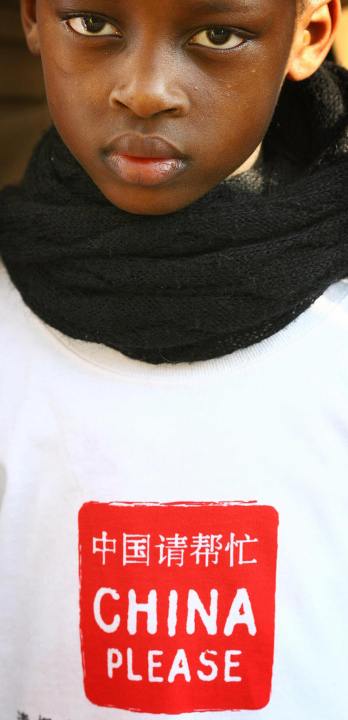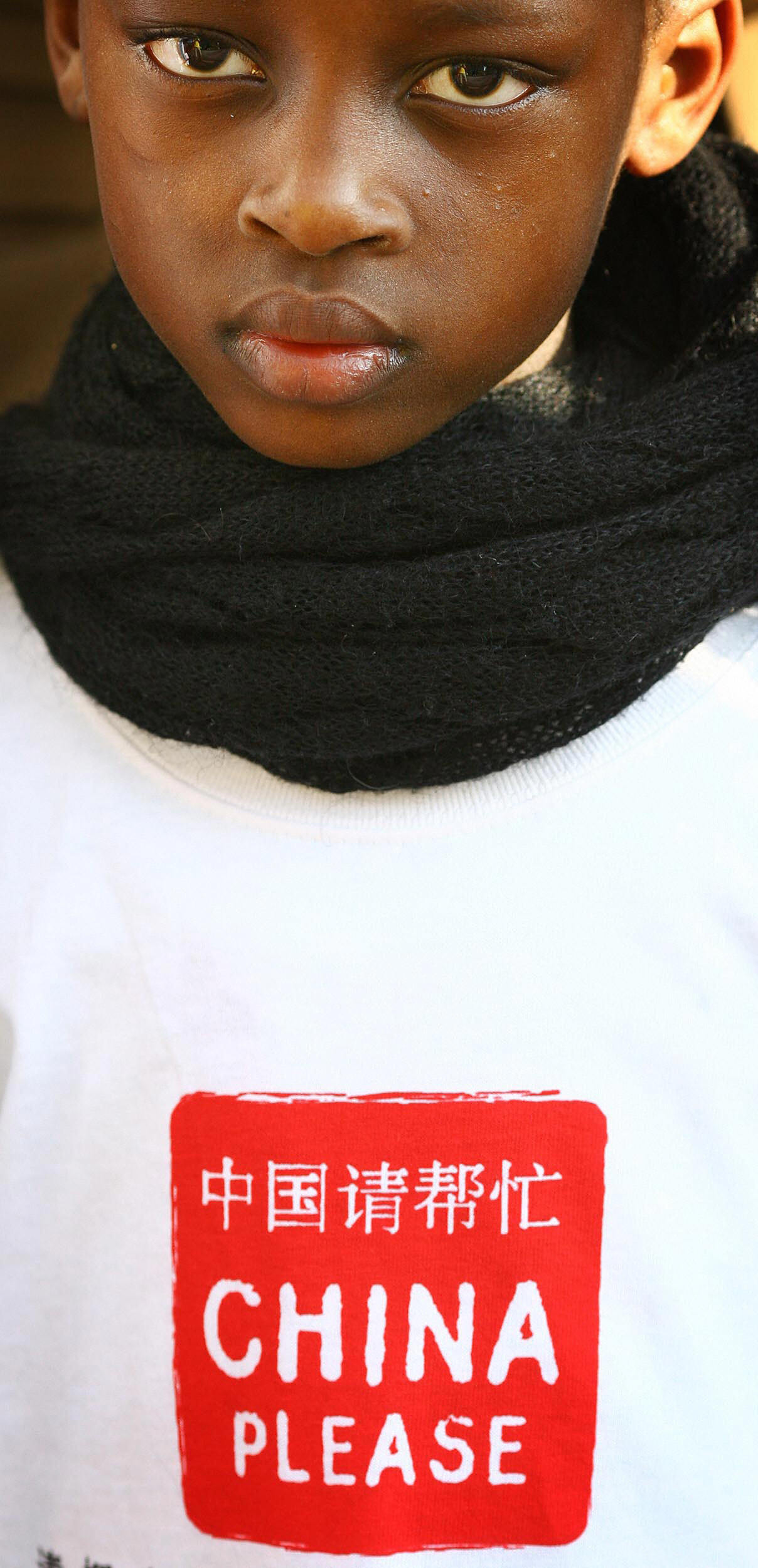Heidi Kingstone on the motivation behind China’s relations with Africa
 Steven Spielberg’s conscience finally got the better of him. The Oscar-winning director resigned as ‘artistic adviser’ to the upcoming 2008 Beijing Summer Olympics last night. His “energy”, he said, “must be spent on doing all I can to help bring an end to the unspeakable crimes against humanity that continue to be committed in Darfur.”
Steven Spielberg’s conscience finally got the better of him. The Oscar-winning director resigned as ‘artistic adviser’ to the upcoming 2008 Beijing Summer Olympics last night. His “energy”, he said, “must be spent on doing all I can to help bring an end to the unspeakable crimes against humanity that continue to be committed in Darfur.”
It is ‘energy’ that is at the root of all this commotion. China buys about two-thirds of Sudan’s oil exports.
Eighteen months ago, in November 2006, China hosted a two-day summit for 48 African leaders, a symbolic moment signalling how important Africa is as a partner in China’s rampant development, but the relationship between Africa and China is not new. It began with the Chinese ‘offer of friendship’ at the 1955 Bandung Conference, and even before that in the 15th century when Zheng He sailed to the Horn of Africa.
Today Africa’s rapidly growing relations with China are often explained by China’s insatiable need for the continent’s natural resources. “While this is true,” says Prof. Calestous Juma, who teaches at Harvard University’s Kennedy School of Government where he directs the Science, Technology and Globalisation Project, “a large part of the shift is because China serves as an economic role model for the continent.” China is a startling example of how a region can rise from poverty within a generation and become a dominant player on the global scene.
This liaison has captured the West’s imagination. Not so surprising, perhaps, when you consider that China-Africa trade has swollen from about $10 billion in 2000 to an expected $50 billion this year. China now imports more than 25% of its oil from Africa.
Both the Africans and Chinese say the relationship is based on mutual understanding, mutual need, and common experiences, particularly when it comes to understanding the horrors of colonization and poverty. If we see it simply as something that benefits only China we miss the deeper issues, which have to do with neglect. [Remember that Sudan has been under trade embargo. It is estimated that some 200.000 people have been killed in the conflict and 2.5 million driven from their homes while the Chinese sell weapons to the Khartoum government and allegedly cover for them at the UN Security Council.]
The idea that this burgeoning but long-standing relationship could be viewed as the new imperialism is simply offensive to Africans. “This,” says Dr Lindiwe Mabuza, South Africa’s High Commissioner in the UK, “undermines the intelligence of the African people. Why can we deal freely with Western countries who once colonized us, but not with the Chinese who have never done so. It’s an absurdity. All countries are making a beeline for China. If it is good enough for Germany then why not for Africa? It is patronizing to suggest that Africa cannot discern what is in its own best interest.”
While the West continues to lecture Africa on good governance and human rights, offering money with conditions, Chinese economic
involvement in Africa is not attached to government reform. Less democratic African countries can’t help but think this is great.
In the echoing halls of the Chinese Embassy in central London, which seemed like a mini version of Beijing’s Great Hall of the People, Xin Ma, political counsellor, said, “we attach great importance to the sovereignty of a country. In China we have a saying. Giving someone a fish is not as good as teaching them how to fish.”
On issues of corruption the Chinese used to be non-committal. Recently, over the last year, they have started to turn up at international conferences to discuss ways of combating corruption. The Chinese are also criticized for not bringing skills into the countries, and for raping the continent of its resources. But the Chinese Export Import Bank has committed US$20 billion to Nigeria, Angola, and Ethiopia over three years for infrastructure projects. This is more than the World Bank will invest in the entire continent over the same period, which seems to counter the argument. The scale is breathtaking.
“The Chinese have a fairly mercantilist view,” says L. Alan Winters, Director of the Development Research Group of the World Bank and editor of ‘Dancing With Giants’ which explores China’s rapid and continuing growth. “They are happy to bring aid to Africa if it opens up market opportunities for them. China is more robust in dealing with African governments, less deferential
in terms of cultural sensitivities.”
China-watchers worry that the West looks at China through a Western prism, and not through the centuries of history that has formed the People’s Republic. The theory of a new colonialism, according to the Chinese, is deeply flawed on many levels, and far too simplistic. What China and Africa share is a huge imbalance of rich and poor. Outside of the glittering modern mega-cities of Beijing and Shanghai about 200 million people live on less than US$1.00 per day.
Achieving food self-sufficiency is fundamental. “The Chinese still have big government stockpiles of key foods as they have had for millennia,” says Alistair Michie, Honorary Associate, Needham
Research Institute, Cambridge, a centre for the study of the history of East Asian science, technology and medicine. “For the first time in their 2200 year long civilisation China is dependent on importing resources. How the Chinese will handle this dependency is a really important question with no historical pointers as a guide.” The Chinese, he adds, have always used history as a mirror. Controversially, he adds, that “ the Chinese are very racist towards black people so will they cope any better with the endless
cycles of violence in Africa? My bet is to look to Chinese pragmatism for the answers. Their decisions will certainly not be driven by ideology.”
Either way, Africa is very happy to have an alternative game and alternative gurus in town, after feeling under the West’s thumb for so long. Maybe China will do better because of this more robust attitude. China is very inventive, pragmatic, used to dealing with troubling bureaucracy and those difficulties and finding ways around the red tape. China is in for the long haul and will only get more powerful over the next two decades.
According to Winters, “China will grow faster than the rest of the world. They will just be larger and more confident. African rulers are happy to have the Chinese there, and the Chinese are happy to be there. What isn’t clear is whether investing in these countries will give China preferential treatment if there is a crunch. When push comes to shove whoever has the most money, influence and power will have the access.” The Chinese probably understand that.
While the Africans seem happy to have the Chinese as a countervailing influence, one senior African-based British diplomat said they treat the Chinese with great suspicion and circumspection. He believes the Africans were deeply offended by the choreography of the November Beijing Chinese-African Summit. Mabuza refutes this allegation saying that China is doing exactly what the Africans asked them to.
Harvard’s Juma believes that the true test of the durability of the relations will depend on whether in future China becomes an importer of Africa’s manufactured goods. How Africa will deal with its other problems – low levels of productivity, high transaction costs, poor and costly access to markets, and labour market rigidity – are key issues that Africa needs to deal with in order to follow in China’s lead.
Right now, as both the African and the Chinese would attest, we are living in interesting times, but for those, like Spielberg, with a conscience and passion for human rights, these times also fuel a sense of despair.






Comments